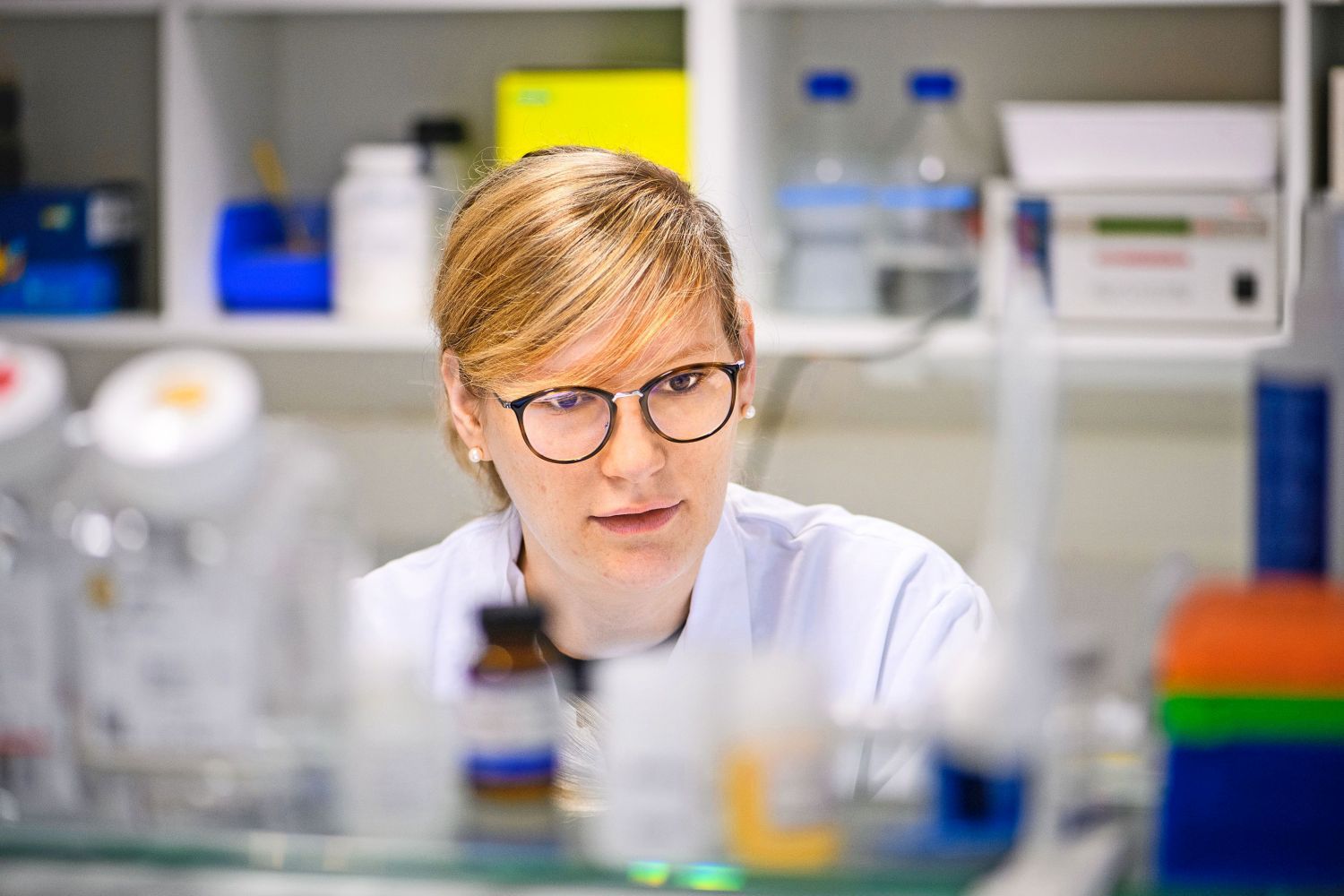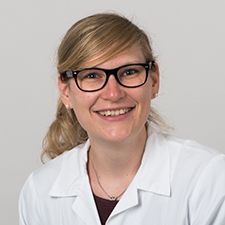Recognizing treatment failure at an early stage: Saskia Hussung is researching how patients with gastrointestinal tumors can receive the most effective therapy.
Cancers of the digestive tract (gastrointestinal tumors), which can occur from the oesophagus and stomach to the liver and pancreas down to the rectum, have one thing in common: often there are no symptoms in the early stages or they are unspecific; in many patients, tumors are therefore only detected at an advanced stage.
This makes treatment more difficult and its success depends on whether the therapy method used is effective. “It is often not possible to predict this with certainty. This is because patients respond very differently to standard therapies and the course of their disease can vary greatly,” says Saskia Hussung, assistant doctor at the Clinic for Medical Oncology and Haematology. “There is still a lack of reliable methods for recognizing at an early stage whether a chosen therapy is also optimally effective in individual cases.” As a result, valuable time is sometimes lost.
Monitoring the tumor during therapy
For some types of cancer, so-called tumor markers are available, the measurement of which in the blood can provide valuable information on the response to therapy. However, the tests for this are not sufficiently sensitive and not specific enough to be able to clearly determine whether chemotherapy, immunotherapy or molecular therapy is effective in a patient. “So far, there are hardly any ways to track the effectiveness of systemic cancer therapies easily and in real time,” says Saskia Hussung, summarizing the current situation. “We have also hardly ever monitored changes in the molecular architecture of tumors as a result of therapy, which can sometimes lead to the development of resistance at an early stage.” In a research project, she is looking for ways to improve the treatment of patients with gastrointestinal tumors using serial analyses of patient blood.
Simply explained: What is a liquid biopsy?
Liquid biopsy is an examination method that enables the analysis of biomolecules circulating in body fluids such as circulating tumor DNA (ctDNA), RNA, proteins or circulating tumor cells (CTC) for the diagnosis and monitoring of diseases, especially cancer. It is most frequently carried out in blood, but can in principle be carried out in all other body fluids such as urine or saliva. In contrast to biopsies, which require the removal of a piece of tissue, a liquid biopsy can be carried out by simply taking a blood sample (or urine or saliva sample). Moreover, since it is not limited to the examination of a specific tissue, a comprehensive analysis of all tumor manifestations in the body is possible at the same time. This technology offers the possibility of detecting genetic mutations and changes in the tumor, predicting resistance to therapies and monitoring the course of the disease in real time. This facilitates the personalized and targeted treatment of cancer.
A simple blood analysis can point the way
The starting point for this are tiny amounts of DNA fragments circulating in the patient’s blood, which are released by the tumor cells and enter the bloodstream. This so-called circulating tumor DNA (ctDNA) can be analyzed quantitatively and qualitatively using the latest molecular analysis technology. The amount of this ctDNA changes much faster during therapy than the classic tumor markers due to its shorter half-life, thus enabling an earlier assessment of the success of a therapy. An early steep drop in the ctDNA concentration in the patient’s blood indicates a very good response to treatment, while a lack of drop or an increase indicates a lack of treatment efficacy.
Detailed analyses of ctDNA can provide further information about changes in tumor architecture in response to therapy. According to current understanding, tumors are highly dynamic and react immediately to environmental influences and, in particular, therapeutic attacks. “This adaptability is what makes tumors so insidious,” says Hussung. “Only if we can measure such changes in real time will we be able to adapt the therapy in future to make it really difficult for the cancer.”
In a first step, Saskia Hussung wants to create a test environment for ctDNA analysis that is specifically geared towards gastrointestinal tumors and then use patient samples to investigate whether the information obtained is meaningful and useful. She then wants to clarify how ctDNA analysis can be integrated into the treatment process as a standard procedure in order to bring the greatest benefit to patients.
Research for the immediate improvement of patients
She received funding for her research project from the University of Zurich’s “Filling the Gap” program. This enables her to devote two days a week for two years exclusively to research. “This is a decisive step forward in my research,” she says happily. Saskia Hussung’s greatest motivation is the direct improvements that her research has for patients.

